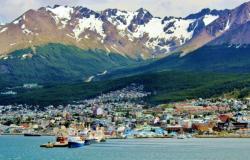
The IMF predicted that this year Argentina’s economy will fall 3.5%, while inflation will reach 140% in December. Likewise, he estimated that the “efforts” made by Javier Milei’s government on the fiscal front “must be complemented by continued rationalization” of energy subsidies. After approving the disbursement of US$800 million, he released his staff report and anticipated that Argentina could return to the capital market in 2025.
According to the agency, following increases in electricity and gas rates of an average of 350% and 200%, respectively, in the first quarter of 2024, “the authorities plan to achieve full cost recovery for most users and replace “the current tariff segmentation scheme with one that only supports the basic energy consumption basket of vulnerable households during the second quarter of 2024.”
In a new edition of its staff report, the organization highlighted that, to that end, “detailed reforms have been prepared for the transition to the new scheme. and a new decree has been issued to eliminate price limits that are linked to the salary indexation formula”. Consequently, he pointed out that the adjustment of electricity prices (PEST) and gas prices (PIST) is expected to occur in the coming months after some delays, “while stricter limits on subsidized electricity consumption will be established as necessary.”
“These actions are expected to ensure a 0.7% reduction in the energy sector, a subsidy bill this year and regularize the sector’s finances,” the Monetary Fund report emphasized.
When could the Government take on new debt
The Fund stated that the Government must “continue preparing the ground” for Argentina to return to the international capital market and estimated that it could only be achieved at the end of next year “or before.”
“On the external side, efforts must continue to prepare the ground to regain access to international capital markets. US$1.4 billion of net financing expected to be provided in 2024, from World Bank, Inter-American Development Bank (IDB) and other regional organizations, such as the Development Bank of Latin America and the Caribbean (CAF) and the Development Fund (FONPLATA) who have agreed to provide liquidity support to finance the expansion of social safety net programs,” said the organization in its report released from Washington.
Furthermore, he highlighted that “China’s firm commitments are in place”including to substantially refinance the withdrawn part of the People’s Bank of China (PBOC) swap for US$5 billion, while pointing out that the renewed financing of the hydroelectric dam project in Patagonia “will be in line with the progress of its implementation, as and how the Argentine authorities work to overcome environmental and labor problems.
In this framework, the Monetary Fund predicted that in the coming years, the Argentine authorities “will continue to focus on further reducing fiscal and external expenditures” to re-access international capital markets “by the end of 2025 or earlier, if possiblewith the aim of better managing the large foreign exchange obligations that come due, while avoiding an increase in debt.
Fall in activity and less inflation
Besides, The IMF estimated that the Argentine economy will fall 3.5% this year and that inflation will reach 140% annually in December. Thus, the organization worsened its projection of the country’s economic growth for this year.
“Output will contract by around 3.5% in 2024 (previously 2.75%), although a turnaround in activity is expected during the second half of this year, as production headwinds ease. fiscal consolidation, real wages begin to recover and investment recovers in response to the reforms,” according to the report.
For the IMF, “activity and demand have contracted sharply, although there are early signs that some sectors could be close to bottoming out. Several indicators point towards a possible stabilization of economic activity from April, including improvements in consumer confidence, a rebound in private credit and cement consumption, all in the context of a rebound in agricultural production after last year’s drought.”
In relation to inflation, he estimated that it will continue to decline, ending 2024 at 140% year-on-year and “declining further in the medium term, as demand for pesos recovers from historically low levels.”





